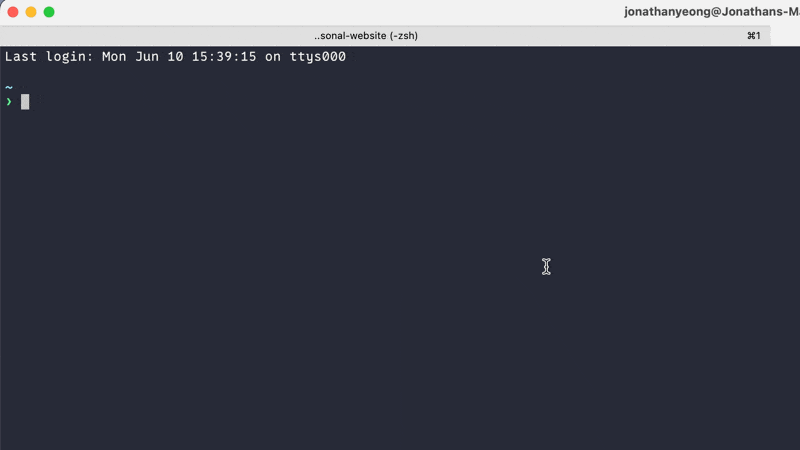Tools I use daily as a solo dev
I was inspired by Nick Taylor’s post “Tools that keep me productive”, to document tools I use daily. These tools help me build and showcase projects, stay organised, and keep me productive. Most of these tools are cross-platform, at least between macOS and Linux.
Editor + Terminal
VSCode is my main editor. I’ve been playing around with Zed, but it doesn’t have the plugin ecosystem (yet) for me to switch over. I’m using the Dracula theme, and SF Mono Powerline font.
Bonus tip: if you’re livestreaming, you can enable screencast mode in VSCode to have it show keystrokes. If you want to turn off all keystrokes, go to settings, search for keyboardOptions, and uncheck show raw keys. After that setting is turned off, it will only display modifier keys.
iTerm2 is my terminal of choice. I use zsh as my shell, with oh-my-zsh installed to manage plugins for zsh. Starship is my prompt, it shows valuable information on a project out of the box. Finally, I added z to jump around to different folders from anywhere.

asdf is my plugin manager. It can manage versions of multiple different languages.
Screen capturing
CleanShotX (paid) is what I use to capture screenshots, videos, and GIFs. It’s a new tool in my workflow, so I haven’t had a chance to fully use it yet.
QuickTime player was what I was using to screen record before CleanShotX. It’s a free tool that comes with macOS. The screen recording feature displays mouse clicks and allows you to select a window or area to record.
Design
Figma is my go-to design tool. It has a free plan that gives you a limited number of projects and pages. It also has powerful features like auto-layout, and components which make building designs faster. The only downside is that you have to pay monthly for multiple projects.
Penpot is a free, open-source Figma alternative that I’ve been playing around with. I don’t have the same muscle memory as Figma, and it’s browser only. But it seems like a promising free alternative.
Excalidraw is my whiteboarding / brainstorming tool of choice. I love Excalidraw. I have a whole post about it! Figma is a too heavy for rough wireframing or brainstorming. That’s where Excalidraw shines.
Note-Taking
Logseq for learning new concepts, or taking quick notes. I dump all my knowledge into Logseq and let references between those notes form over time. There’s no real concept of folder structures, which means I don’t need to spend a lot of time figuring out where notes should go. It also comes with a built-in query language, which can help you find information. My favourite part about Logseq is its unlinked references. Meaning you don’t need to explicitly add references to things, Logseq can do it for you.
Obsidian for long form writing, like blog posts. I have a blog post workflow in Obsidian. It’s also where I write journal entries or do my goal setting. Both Obsidian and Logseq store notes locally, so I can write offline.
Notion for documentation that needs some kind of UI (like a table of contents), that I won’t need if I’m offline. It’s where my brag doc lives.
Project management
GitHub Projects is how I manage all my projects. I’ve set up a single GitHub Project that pulls in issues from various GitHub repos. It gives me an overview of all the things that I want to do, and then lets me drill down into what I should do next.